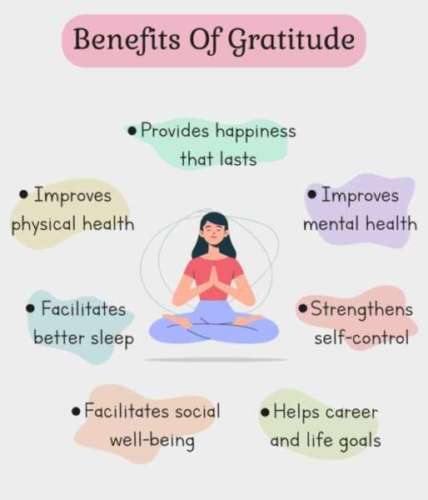
Before the feast begins, everyone around the table shares something that makes them feel grateful. It’s a Thanksgiving tradition in many U.S. families, but you might be surprised to learn that this simple exercise can have dramatic health benefits.
A study done at USC demonstrates that benefits associated with gratitude include better sleep, more consistent exercise, reduced symptoms of physical pain, lower levels of inflammation, lower blood pressure and a host of other things we associate with better health. Here are some ways that having a daily attitude of gratitude can improve your health.
- Gratitude improves physical health. Grateful people experience fewer aches and pains and report feeling healthier than other people, according to a 2012 study published in Personality and Individual Differences. Not surprisingly, grateful people are also more likely to take care of their health. They exercise more often and are more likely to attend regular check-ups, which is likely to contribute to further longevity.
- Gratitude improves psychological health. Gratitude reduces a multitude of toxic emotions, from envy and resentment to frustration and regret. Robert Emmons, a leading gratitude researcher, has conducted multiple studies on the link between gratitude and well-being. His research confirms that gratitude effectively increases happiness and reduces depression.
- Gratitude enhances empathy and reduces aggression. Grateful people are more likely to behave in a prosocial manner, even when others behave less kindly, according to a 2012 study by the University of Kentucky. Study participants who ranked higher on gratitude scales were less likely to retaliate against others, even when given negative feedback. They experienced more sensitivity and empathy toward other people and a decreased desire to seek revenge.
- Grateful people sleep better. Writing in a gratitude journal improves sleep, according to a 2011 study published in Applied Psychology: Health and Well-Being. Spend just 15 minutes jotting down a few grateful sentiments before bed and you may sleep better and longer.
- Gratitude improves self-esteem. A 2014 study published in the Journal of Applied Sport Psychology found that gratitude increased athletes’ self-esteem, an essential component to optimal performance. Other studies have shown that gratitude reduces social comparisons. Rather than becoming resentful toward people who have more money or better jobs – a major factor in reduced self-esteem – grateful people are able to appreciate other people’s accomplishments.
- Gratitude increases mental strength. For years, research has shown gratitude not only reduces stress, but it may also play a major role in overcoming trauma. A 2006 study published in Behavior Research and Therapy found that Vietnam War veterans with higher levels of gratitude experienced lower rates of post-traumatic stress disorder. A 2003 study published in the Journal of Personality and Social Psychology found that gratitude was a major contributor to resilience following the terrorist attacks on September 11. Recognizing all that you have to be thankful for, even during the worst times, fosters resilience.
- Gratitude opens the door to more relationships. Not only does saying “thank you” constitute good manners, but showing appreciation can help you win new friends, according to a 2014 study published in Emotion. The study found that thanking a new acquaintance makes them more likely to seek an ongoing relationship. So whether you thank a stranger for holding the door or send a thank-you note to that colleague who helped you with a project, acknowledging other people’s contributions can lead to new opportunities.
Practicing daily gratitude actually changes the neural structures within the brain. Links between gratitude and brain structures tie to social bonding and stress relief. Other studies have revealed connections between the tendency to feel grateful and a chemical called oxytocin that promotes social ties. Feeling grateful and appreciating others when they do something good for us triggers the ‘good’ hormones and regulates effective functioning of the immune system. Also, at the neurochemical level, gratitude acts as a catalyst for neurotransmitters like serotonin, dopamine and norepinephrine – the ones that manage our emotions, anxiety and immediate stress responses.
Practicing gratitude is synonymous to expressing our feelings for others and ourselves. By utilizing simple words of love and praise, we not only make others feel good, but we also feel a lot better ourselves. Gratitude is about feeling the right way, about the right things and being in the present. It is inseparably linked with self-discipline and motivation. It may not give us instant relief from pain and stress, but it brings the feeling of control back to us. By acknowledging and appreciating our assets, gratitude gives us the charge of our own lives.
So this Thanksgiving, why not start a new personal habit of daily gratitude? You’ve got nothing to lose and everything to gain.

